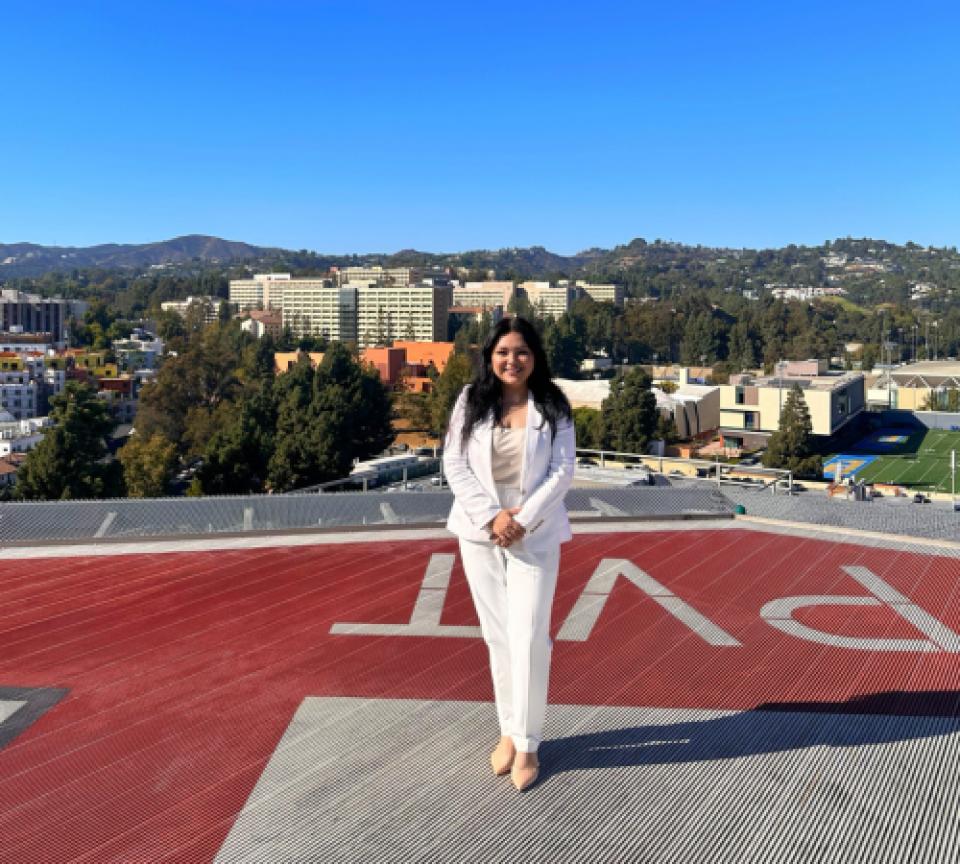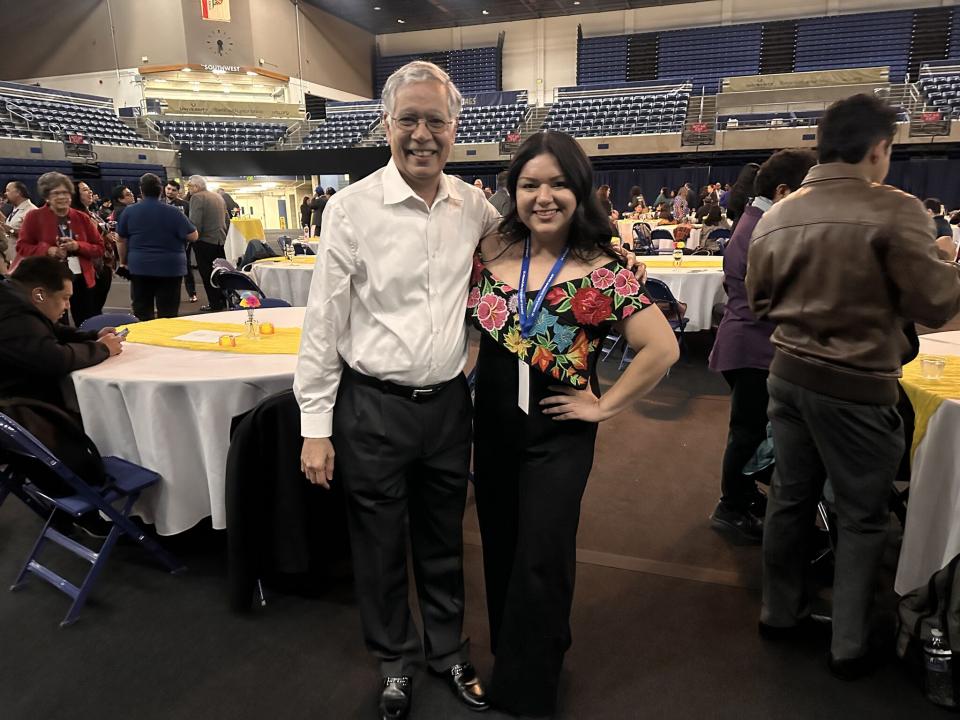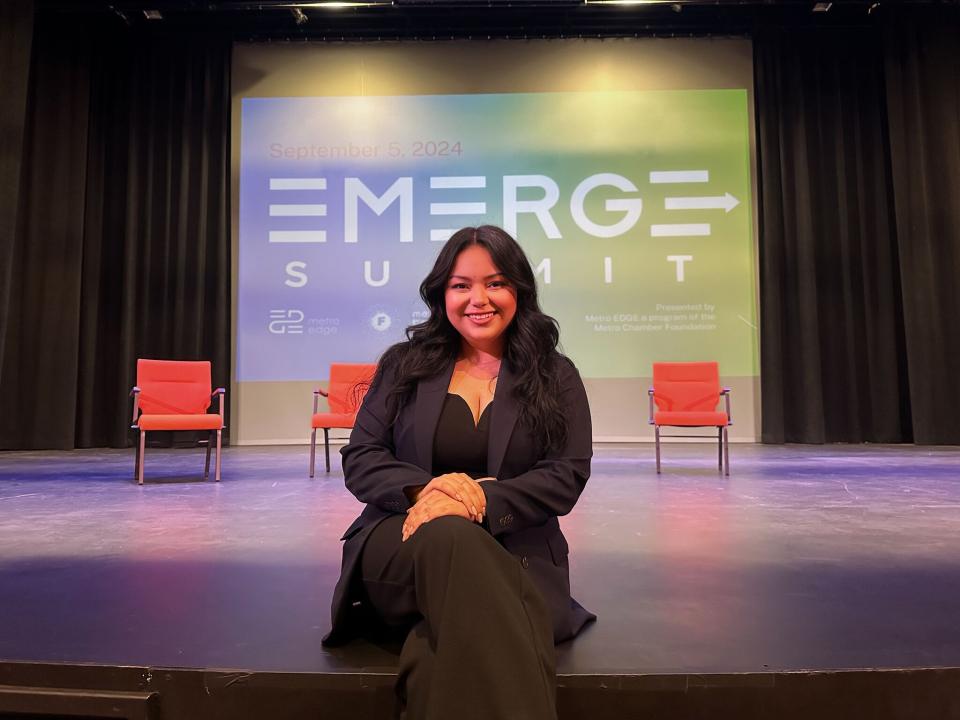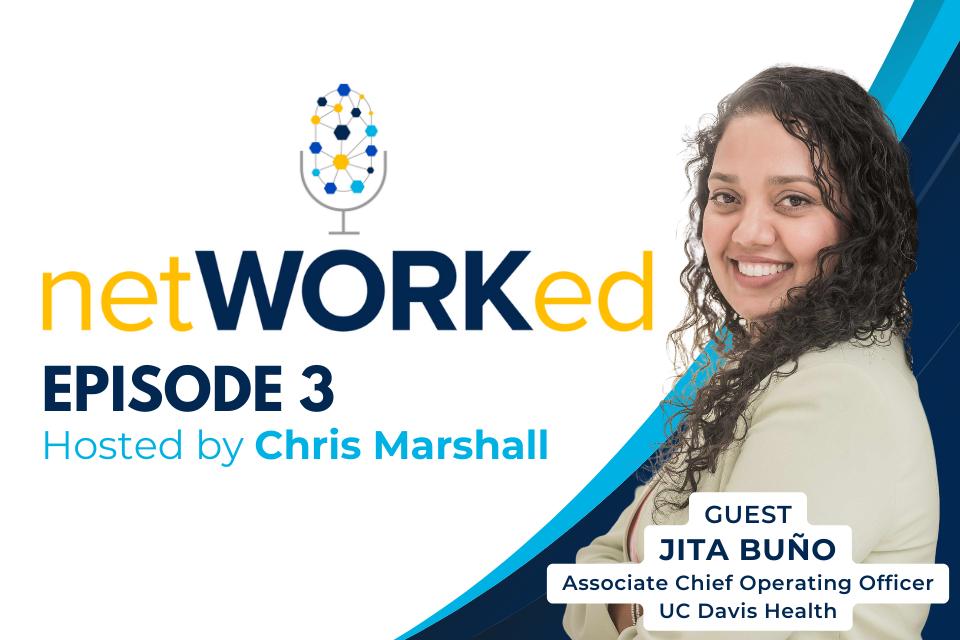Breaking Barriers: MBA Alumna Named UCLA Health’s First Finance Fellow
Four strategies to help you succeed in your next interview

Most MBA students are confronted with the age-old question: what do you plan to do with your MBA? Life after graduation may involve charting a new career path, aiming for executive leadership, or exploring entrepreneurship, but one thing is for sure— every experience shapes the path forward.
During my last year as an MBA student, I began a rigorous application process with the goal of securing an administrative fellowship, a structured, post-graduate program designed to develop masters-prepared administrative leaders through experiential learning, mentorship and executive exposure.
Readying for Leadership in Health System Finance
I applied to serve as UCLA Health’s very first Health System Finance Fellow and was thrilled to accept the offer as the first Latina in this role.
Securing an administrative fellowship felt like the culmination of a mosaic. It became a vibrant collection of experiences, lessons, and skills gained throughout my MBA journey at the UC Davis Graduate School of Management.
Each essay and interview question response was shaped by moments of growth in the Sacramento Part-Time MBA program. There were several classes that played a key role in my success.
I learned to refine my presence and communication in Articulation and Critical Thinking, mastering the nuances of body language, word choice and tonality. I discovered how to promote my personal brand during Lecturer Vanessa Errecarte’s Personal Branding weekend residential.
Lecturer Jim Wunderman’s Executive Leadership Seminar taught me the transformative power of storytelling in leadership. This coursework, combined with practical applications from classes in finance, strategy, operations, analytics, consulting, and project management, prepared me to step into this new role with greater confidence and clarity.
Why the Sacramento Part-Time MBA?

As the only MBA among the finalists for the UCLA opportunity, I was concerned that my lack of a Master of Healthcare Administration (MHA) would be a disadvantage.
While choosing between an MHA and MBA three years ago, I opted for the MBA for its broader business and leadership training across industries.
When choosing between MBA programs at different schools, I knew I wanted an in-person graduate school experience. The Graduate School of Management’s integration of in-person and online classes allowed me to build meaningful connections within my community.
My cohort became a tight-knit group of friends who celebrate each other’s achievements, support one another through challenges and contribute to building connections that will last a lifetime. Even as alumni, we remain in each other’s lives and professional networks.
I also chose the Part-Time MBA program because I work full-time as a supervisor in the Labor and Delivery unit at UC Davis Health. The evening and weekend MBA classes are specifically designed to accommodate the demanding schedules of working professionals.
This UC Davis MBA program also delivered the comprehensive business management education I needed to pivot into a finance-focused leadership role. Before pursuing my MBA, I had no formal background in finance.
The MBA core curriculum introduced me to financial accounting, and I was quickly inspired to apply financial concepts I learned in class to real-world business challenges at work almost instantly. I further developed these skills by taking advanced courses like Financial Theory and Policy and Managerial Accounting.
Administrative fellowships are known to be competitive and consist of multiple rounds of interviews.
Here is how I prepared for mine:

The Job Advice That Helped Me Prepare for My Interviews
1. Leverage Your Resources
- Take advantage of the School’s networking groups, resources and industry standard digital platforms to revamp your resume and cover letter with templates.
- Submit your drafts to the Career Development team for feedback.
- Stay engaged with career resources via Canvas, Career Development newsletters and workshops.
2. Do Your Homework
- Research the organization’s mission, current news, future developments, social media posts and leadership structure.
- Network with employees to gain an insider’s perspective on the organization’s structure and culture.
- Research your interviewers. Look for publications, shared experiences or values to connect with the interview panel.
- UC Davis has a large collection of databases like Pitchbook to help you research your targeted company's comprehensive M&A data, news, and relevant insights spanning global capital markets.
3. Practice Makes Proficient
- Schedule mock interviews with the Career Development team.
- Prompt AI to generate “difficult interview questions” for the position you are seeking.
- Record yourself answering questions to refine your delivery and content.
- Participate in interview panels at work, school or your student club to understand what interviewers are looking for and the criteria used to evaluate candidates.
4. Adopt a Winning Mindset
- My favorite piece of advice from the Career Development team: “You’ve already done the hard work.”
- By the time you apply to a position, you have already completed the work required to qualify for it.
- Now your success will depend on how you showcase your lived experiences in the interview.
- Build your confidence so that it exudes naturally in your interview.
- Give responses that focus less on your credentials and, instead, highlight the impact your skills and contributions have had on projects and initiatives.
- Companies want to visualize how hiring you will add value to their organization.
- Provide specific examples in your responses using the STAR format.
- Identify the unique skills that set you apart from other candidates. What is your competitive advantage?

Aligning My MBA with My New Career
As a Finance Administrative Fellow at UCLA Health, I apply the financial acumen gained through my MBA to drive initiatives in revenue cycle management, budgeting, and strategic financial planning across the health system.
I am actively building a deeper understanding of how payor mix, denial management, and reimbursement models impact system-wide revenue, sustainability, and our patients.
In collaboration with financial analytics teams and decision support services, I leverage data-driven analysis to guide transition planning decisions, forecast performance, and optimize resource allocation.
My fellowship also provides cross-functional exposure to diverse finance and operations departments, allowing me to lead projects that connect financial operations with clinical priorities and patient care outcomes.
Through ongoing engagement in senior leadership meetings, I am refining my executive-level decision-making, strengthening my communication and business acumen, and positioning myself to bridge finance and operations in California’s No. 1 hospital. My MBA has prepared me for this opportunity to accentuate my passion for leadership and thrive as an emerging healthcare finance leader.


